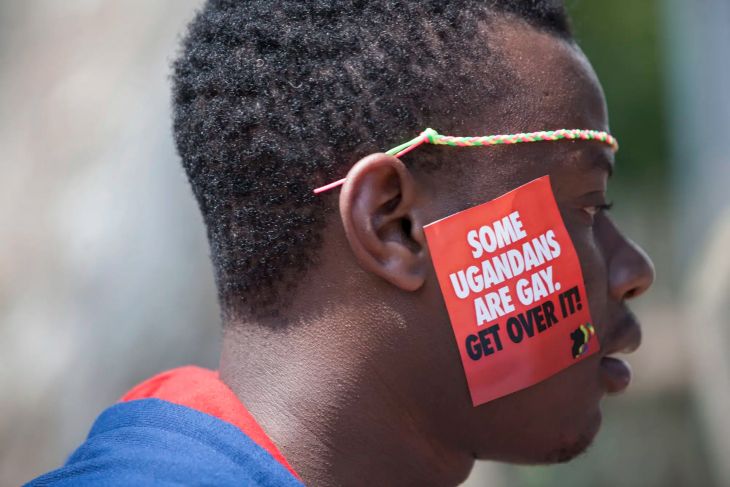Ugandan President Yoweri Museveni has a choice to make – one that could affect his country’s global reputation and developmental well-being for some time to come.
Last week, the Ugandan parliament overwhelmingly passed a radical anti-gay bill that states, inter alia, that people who identify as gay can face up to life imprisonment. As well, according to the BBC, individuals or institutions that support or fund gay rights' activities or organisations, or publish, broadcast and distribute pro-gay media material and literature, face prosecution and imprisonment.
The bill also calls for the death penalty for what is described as "aggravated homosexuality” meaning the sexual abuse of a child, a person with disability or vulnerable people, or in cases where a victim of homosexual assault is infected with a long-term life-threatening illness.
It is now up to President Museveni to decide whether to sign the bill into law and risk losing international developmental support or veto the bill and go against public sentiment in Uganda.
Thirty-four African countries outlaw gay activities, and many of the laws are relics of British colonial administrations. Many leaders in Africa, like President Museveni, claim that homosexuality was brought to Africa by foreigners – ignoring research that demonstrates that homosexuality has long been part of various African cultures. Indeed, the Kingdom of Buganda (today part of Uganda) actually institutionalized certain forms of same-sex relations.
How are multilateral institutions responding to these official acts of discrimination against the LGBTI (Lesbian, Gay, Bi-sexual, Transsexual, and Intersex) community?
Not too well in my opinion.
Of the 53 independent member countries of the Commonwealth (an association of 54 countries, most former colonies of the United Kingdom), 42 criminalise some or all consensual adult same-sex sexual relationships. In much of the Commonwealth, LGBTI people are denied equal access to health services, employment, education, housing and human rights.
Now many may face a death penalty in Uganda.
And the Commonwealth appears powerless to bring pressure to bear on these countries!
Across the United Nations things are not much better.
Asked about this proposed law by journalists on March 23, U.N. Deputy Spokesperson Farhan Haq said, “our High Commissioner Human Rights, Volker Türk has said that … the passing of this discriminatory bill, probably among the worst of its kind in the world, is a deeply troubling development." And he believes that it would criminalize lesbian, gay and bisexual people in Uganda simply for existing. And of course, as you know, the Secretary-General shares the High Commissioner's support for the rights of LGBTI people and indeed all people around the world”.
The U.N. and Commonwealth Secretariats may well be concerned, but many homophobic states are members in good standing of both institutions, including the U.N. Commission for Human Rights. They serve despite their blatant disregard for human rights, a fundamental condition for membership in both organizations.
Is this enough to sway President Museveni?
Having attended several meetings between him and then-Commonwealth Secretary General Don MacKinnon in 2007, I came away finding his attitudes and approach to government and human rights worrisome as he showed an eagerness to display his macho leadership style at the expense of any who opposed him. Consequently, I do not believe that the Ugandan parliament would have overwhelmingly passed such a draconian law without his full support.
So, President Museveni may find himself in good company in some quarters. But in major donor states, upon which Uganda depends for developmental funding, gay rights have become sacrosanct, and this legislation will raise the hackles of human rights associations and supporters across the spectrum.
This is an example of where pragmatism outweighs principles. Responding to his electorate’s demands may be more important than catering to the international donor community, especially when anti-gay bedfellows like China and Russia are ready to continue their expansion into Africa with no political cost to the authoritarian governments that govern many African states.
Keep reading: The Perfect Versus the Good
Edición: Laura Espejo
Un conflicto con el potencial de extenderse muy rápido ante el capricho de EU e Israel
Eduardo Lliteras
La alcaldesa declaró que mientras las mujeres vivan violencia queda trabajo pendiente
Astrid Sánchez
Delcy Rodríguez calificó la relación económica entre ambos países como un ''ganar ganar''
Ap
